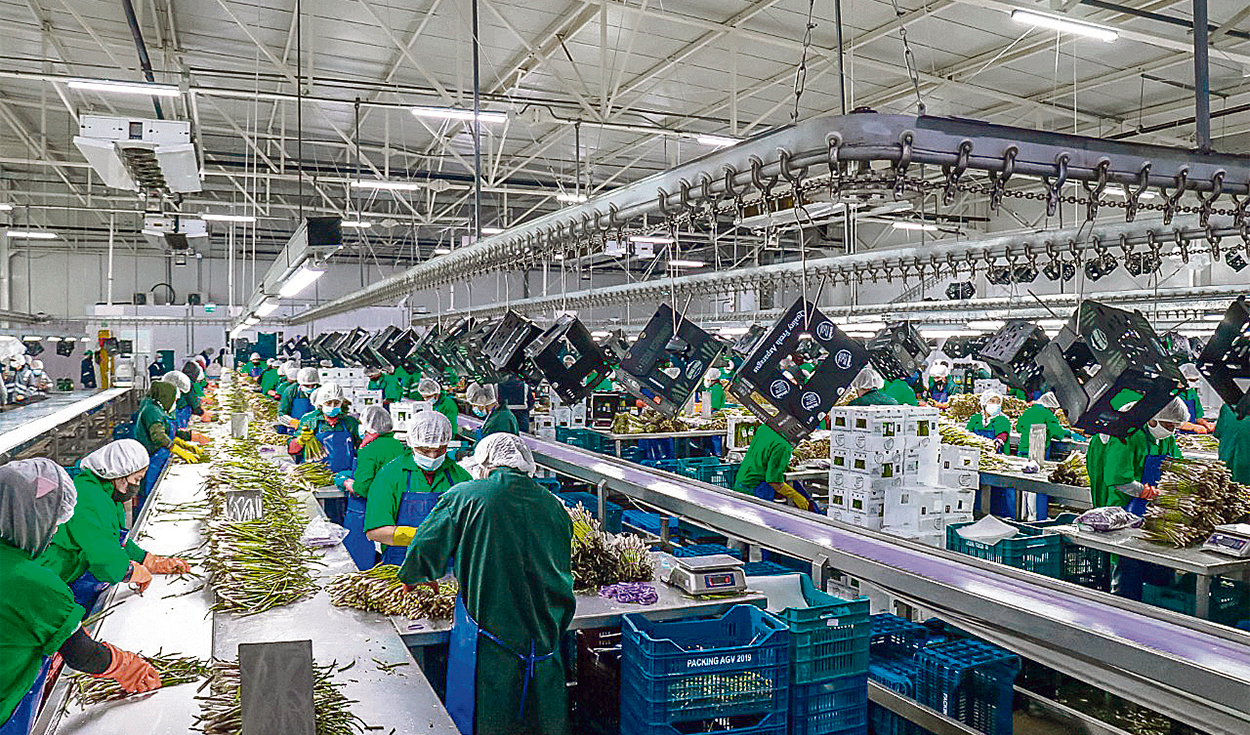
The Government of Dina Boluarte has complied with the promulgation of Law 31969, coordinated with the Congress –as recognized by the Minister of Agrarian Development, Jennifer Contreras– to reduce to 6% the contribution to EsSalud that agro-exporters pay for their workerss, difference that will be subsidized by the rest of the taxpayers. The measure comes into effect today and runs until 2028.
Until before the deceased was repealed Agrarian Promotion Law In 2020, agro-exporters gave only 6% for the health of their workers, compared to the 9% paid by other economic activities.
After this, it was determined that its contribution would begin to increase gradually until reaching the current 9% in 2025. Thus, between 2021 and 2022 it rose to 7%; and in 2024 it had to reach 8%. However, as part of the measures announced by the Ministry of Economy and Finance (MEF) to gain ground in the midst of the recession process, a new cut in the contributions of the entire formal agricultural chain to Essalud was socialized and promoted by law. .
The controversy is that the conditions of the new one specifically favor the large agro-exporters, since the small ones were already paying less contributions (6%) to EsSalud to date.
It should be noted that, according to labor activist Fernando Cuadros, the benefit is concentrated in about 15 companies. While the former Minister of Economy Pedro Francke He assured that the application of the measure will mean a fiscal blow of more than S/400 million this year alone.
Benefits for textiles
Law 31969 originally did not contemplate the reduction of agro-exporters to Essalud, this was included at the last minute in the Plenary by Congressman Víctor Flores Ruiz (Fuerza Popular).
For this reason, it is also established that textile and clothing companies that reinvest their profits after paying income tax will be entitled to a tax credit of 20% of the reinvestment of the amount of annual profits, from 2024 to 2028.
Likewise, the machinery and equipment used by companies in both sectors that have been acquired between 2024 and 2028, being affected by the production of taxable income, “may be depreciated by applying the annual depreciation percentage to its value up to a maximum of 33. 33% for the machinery and equipment acquired in the years 2024 and 2025, and 20% for those acquired in the years 2026, 2027 and 2028, until its total depreciation,” says the autograph.
Finally, it is established that companies in these sectors that hire one or more new workers, for purposes of determining income tax from 2024 to 2028, may apply an additional deduction of 70% at 30%.
Data
Smuggling. Carlos Anderson was one of the legislators who warned that the benefits to agriculture were being included in a measure of the textile sector.
Figures. There are 2,100 companies in agro-export, according to Adex.
Source: Larepublica
Alia is a professional author and journalist, working at 247 news agency. She writes on various topics from economy news to general interest pieces, providing readers with relevant and informative content. With years of experience, she brings a unique perspective and in-depth analysis to her work.












